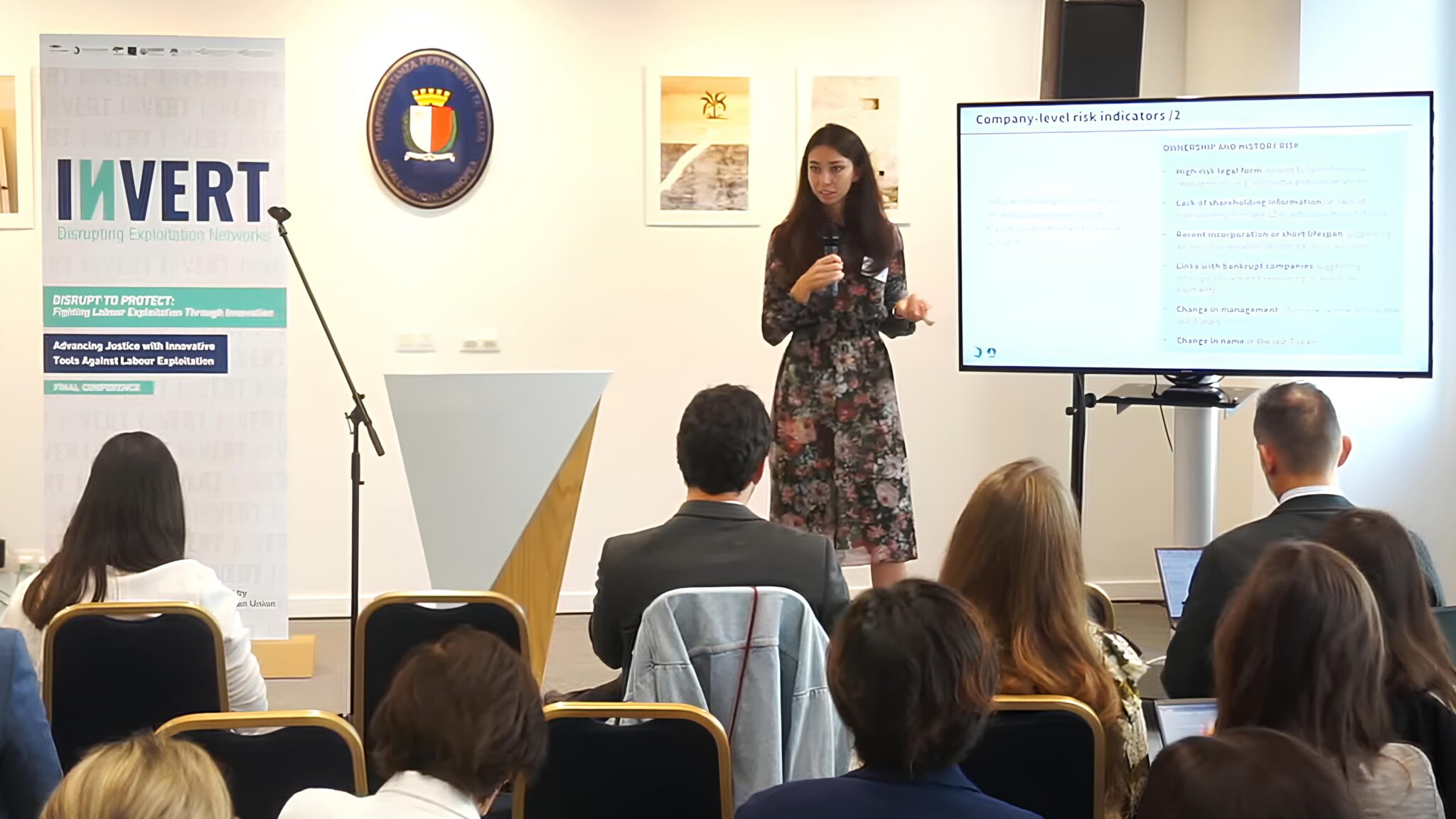Transcrime at the 2025 ASC Conference
“Criminology, Law, and The Democratic Ideal”
12–15 November 2025 – Washington, D.C. – Marriott Marquis
This year’s American Society of Criminology conference reflects on how criminological research contributes to the reinforcement of the rule of law and democratic accountability. A shared ambition across all EU-funded projects and studies undertaken by Transcrime.
Across initiatives addressing corruption and its facilitators to safeguard democracy (e.g. FALCON, RESPOND, SECURE, ACOI), the protection of markets from criminal aims (e.g. DATACROS III, NEXT-IJ, KLEPTOTRACE, INVERT), and the prevention of phenomena that endanger fundamental rights, communities, and public safety (e.g. FERMI, PARTESS-COM, VANGUARD, TENACITY, EMERITUS), Transcrime’s approach turns research findings into guidance for decision-making and solutions to protect democratic values.
At ASC 2025, we will present case studies and research project analyses on the misuse of legal entities, money laundering, an analysis on victims and perpetrators of human trafficking, and the social ties driving criminal collaboration.
Full programme available here.
TRANSCRIME SPEAKING AGENDA:
WEDNESDAY, Nov 12
Vulnerabilities and Protective Factors of Victims and Perpetrators Involved in Trafficking in Human Beings (Author: Carlotta Carbone)
9:30 to 10:50am
Click to read the abstract
Trafficking in Human Beings (THB) remains an enduring and multifaceted problem with severe societal implications. While extensive research has explored victims’ experiences and vulnerabilities, significant gaps persist—particularly regarding protective factors that could help individuals avoid or exit trafficking. This study examines the vulnerabilities and protective factors affecting both victims and perpetrators of THB, focusing on three major forms—sex trafficking, labour trafficking, and forced criminality—within the European context. It combines a comprehensive literature review with insights from semi-structured interviews with THB experts, including law enforcement officials, border guards, researchers, NGO representatives, and other stakeholders. Preliminary findings challenge stereotypical portrayals of victims and perpetrators and highlight overlooked vulnerabilities in lesser-studied forms of trafficking. This study is conducted within the framework of the European-funded VANGUARD project (Grant Number 101121282).
Social Embeddedness, Multiplexity, and Criminal Collaboration within the Sinaloa Cartel (Authors: Valentin Pereda, David Décary-Hétu, Francesco Calderoni)
2:00 to 3:20pm
Click to read the abstract
This study investigates how social embeddedness shapes criminal collaboration within the Sinaloa Cartel, one of the largest drug-trafficking organisations globally. Drawing on trial transcripts from Joaquín “El Chapo” Guzmán Loera’s U.S. federal case, we coded multiplex social relationships—including familial ties, friendships, compadre relations, meetings, and collaborative transactions—into network data.
Using social network analysis and statistical models, we assess the extent to which these ties are associated with criminal collaboration. Findings reveal that friendship and meeting ties are the strongest predictors of collaboration, while familial ties lose their effect once shared organisational membership is controlled for. These results underscore the role of trust-based relationships in sustaining organised crime and demonstrate the methodological potential of judicial data for analysing criminal networks.
FRIDAY, Nov 14
Author Meets Critics: The Israeli Mafia. Cultural Journey into Israeli Organized Crime
2:00 to 3:20pm, Room TBA.
- Author: Dina Siegel
- Critics: Jay Albanese, Francesco Calderoni, Sheldon Zhang
SATURDAY, Nov 15
Money Laundering-as-a-Service: An Empirical Analysis on False Invoicing Providers (Author: Michele Riccardi)
8:00 to 9:20am
Click to read the abstract
False invoicing—the issuance of invoices for services that do not exist or whose value does not correspond to the actual transaction—is one of the most neglected crimes in criminological research, yet it plays a crucial role in modern organised and financial crime schemes. This paper provides an empirical analysis of several dozen cases of false invoicing detected in Italy, offering a sociological and criminological interpretation of why this offence is employed, by whom, and who provides these criminal services. Findings reveal the existence of specialised providers, including foreign individuals and organisations, offering money laundering-as-a-service through false invoicing. The study demonstrates how this practice has transformed both the structure of laundering markets and the dynamics of predicate crimes, including mafia-type operations. The analysis is conducted within the framework of the FALCON project.

Latest news
View all news
NEXT-IJ Investigathon: technologies and AI for investigative journalism
The effectiveness of investigative journalism is a barometer of a healthy democracy, strengthening transparency around power and economic interests. Yet, to trace connections and document facts, journalists increasingly need new skills and tools to unravel complex, transnational criminal patterns. To support them in this challenge, the Università Cattolica hosted the three-day…

TENACITy: a new report and tools to investigate the abuse of transport systems
The new report “Preventing the misuse of commercial aviation: Using passenger data to identify high-risk passengers and emerging threats” provides a high-level overview of the research activities carried out by Transcrime within the Horizon Europe-funded project TENACITy (Travelling Intelligence Against Crime…

A conference in Italian on integrity measures in a major public project
A conference in Italian will be held on 3 December 2025 at Università Cattolica (Milan) to present the first empirical study in Italy on integrity controls in a major infrastructure project: the construction of Milan’s Blue Metro Line. Conducted by Transcrime, its spin-off Crime&tech, and Metro4…

Prevent and Detect – DATACROS III Training
“How to early-detect organised crime infiltration, corruption and fraud: red-flags and best practices” 14 November 2025 | 10.30 – 16.30 CETWebinar on Webex Public procurement, local authorisations, and service contracts are prime targets for organised crime, channeling substantial financial flows and offering long-term influence…

Kick-off Meeting of SECURE: Strengthening the Rule of Law against Corruption
Corruption is a powerful driver of organised crime within the European Union, and the exposure of Member States has been highlighted by recent scandals. According to Europol’s recent report, today over 70% of the EU’s major criminal networks currently rely on corruption to move illicit assets, misappropriate public funds…

Outcomes from INVERT: A Risk-Based Tool Against Labour Exploitation
Labour exploitation has emerged as predominant purpose of human trafficking in Europe. A recent report from the European Commission revealed that the proportion of victims of human trafficking subjected to labour exploitation doubled between 2008 and 2023, now exceeding 40% of identified cases. During a recent meeting organised by…
